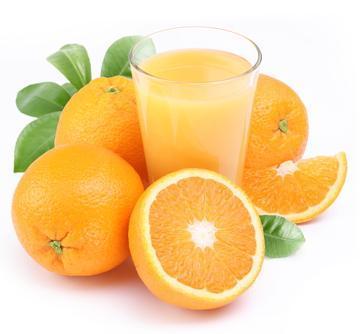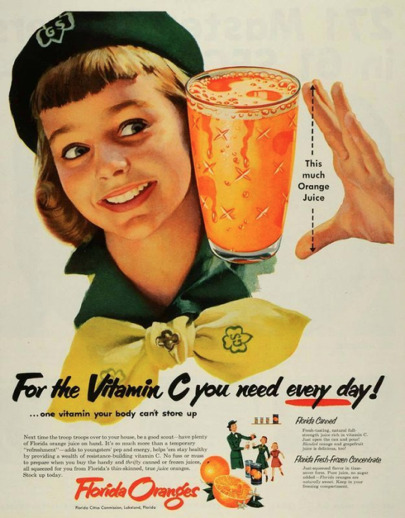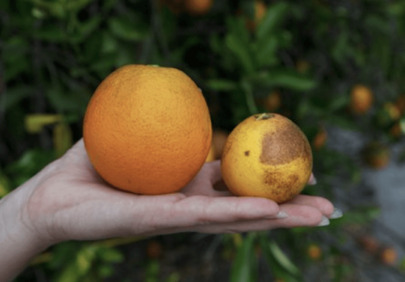#tumple stopped letting me add pictures
Text
The Withering Popularity of Orange Juice
I recall once being told when I was little that orange juice can be used as a barometer to tell how the economy is doing. At that time, I didn't really realize what my mom meant. After all, what eight-year-old has any sort of cohesive grasp on the economy? Orange juice is something that I grew up with. As a child, I was convinced that orange juice was and would always be around forever, and that everyone in the history of the world drank it for breakfast. I took it for granted for most of my life, overestimating its permanence entirely. Once it stopped magically showing up in my family's fridge, I realized what I had been missing out on. Apparently, orange juice is a commodity, the popularity of which is on the decline. And it doesn’t look too a-peel-ing.

Actually, orange juice is a fairly recent invention. Well, the way we drink it is. People have been drinking the juice of squashed fruits for ages. It was a pain to keep fresh, and was only considered a luxury item at the time. Because of that, oranges were almost always eaten whole, instead of being turned into juice. It was just easier that way. "The model for production and consumption of bottled orange juice was similar to fresh milk: it must be locally produced and locally consumed" (Newman 135).
In order to make orange juice a viable breakfast option, ”From Concentrate" orange juice was invented during World War II, during a time when the economy was better, people had more time, and money had more value. The only way to preserve it before that was to boil it and can it, which allegedly ruined the taste entirely (Ferdman). From Concentrate orange juice revolutionized production, increased shelf life, and made it possible for it to be shipped and traded in huge quantities. Sales skyrocketed, and orange juice could be found in nearly every picture-perfect commercial breakfast lineup ever. However, lately things haven't been looking so great for our favorite breakfast drink. The orange juice market has been on a steady decline since the 90's, for an array of reasons that just keep building.

First off, years and years of advertising has built up orange juice as the perfect accompaniment to a 'well-balanced breakfast'. Chances are, when you hear "orange juice" you think of breakfast. There's no clear answer as to why, but some people speculate that it's because the sugar and acidic citrus flavor wakes up the senses. Whatever the reason, orange juice has been advertised as nothing but a breakfast food for as long as anyone can remember, and that indelible label on orange juice's role in the average person's diet is doing it no good.

Today's ideals concerning food specifically have changed drastically from what they were back in the day. Younger adults specifically are skipping out on breakfast these days, and also avoiding sugar. These go hand in hand, as a lot of breakfast foods are very high in sugar, orange juice included. In fact "Some 89% of American adults ate breakfast back in 1971, according to data from the National Health and Nutrition Examination Surveys. As of 2002, that number has fallen to 82%, and is likely lower now" (Ferdman). Most likely due to a rising sense of urgency in today’s economy, working folks are too focused with an on-the-go lifestyle to sit down and enjoy a meal to start off their day.
Life today is much faster paced than it was in the days following WWII, with the advent of technology making everything easier, yet also harder. No one has time for breakfast anymore, usually opting instead for the convenience of eating something small yet calorically dense, and washing it down with coffee. As a result, the long standing iconography of a perfect breakfast that includes orange juice has been falling apart for years. Allow me to make side note about coffee. It has long since overtaken orange juice as the most popular breakfast drink, and it makes sense as to why. There are about a million variations on the bitter brew, and its caffeine packed punch guarantees a burst of energy, compared to orange juice’s sugar fueled rush. Plus, it’s incredibly accessible and plentiful across the globe.
On top of that, we've come full circle on our methods of procuring orange juice. Ferdman claims in his article How America fell out of love with Orange Juice, "Increasingly, consumers seem to be accepting the challenge posed by the 1980s Minute Maid tagline: “For juice that tastes fresher, you’ll have to squeeze it yourself.”' All of this contributes to the fact that the amount of orange juice purchased shrinks a little more every year.
As if that wasn't bad enough, there's also a disease that's killing off a huge percentage of oranges around the world. It's garnered enough reputation around the world to be known by many names, one of which is Yellow Dragon disease. If it wasn't killing off my favorite fruit, I would say that it sounds pretty cool. In most cases though, it's called Citrus Greening. Not only does it make nasty little fruits that are entirely inedible, it eventually kills off the whole tree.

The disease has actually been around for centuries, but it's only gotten really bad within the last two decades. "The disease hit south Florida in 2005. Scientists now believe just about every orange grove in the state of Florida is infected" (Ferdman). At this point, it's affecting almost every orange orchard in the entire world, and scientists haven't figured out how to effectively stop it. In fact, the disease spreads so easily that even wind and tools that have been used near infected trees can spread it. Pesticides don't even seem to be making a dent, despite the carrier of the disease being infected insects. As the USDA states, "While the disease poses no threat to humans or animals, it has devastated millions of acres of citrus crops throughout the United States and abroad" (USDA). The use of pesticides and the questions that it brings up is a topic for another essay. Said disease also causes the trees to drop their fruit more often. As if having pathetic, shriveled fruit wasn't bad enough, now there's less fruit overall that have the chance to make it to juicehood. Scientists are considering turning to genetic modification as a last attempt to stave off the disease, but the use of GMOs is so widely frowned upon in today's society that even if it did manage to kill off Citrus Greening, the market might still take a hit.
You may be asking, “Didn’t you say something about a barometer?” With consumption falling and prices rising, the future of orange juice doesn't look too great. Orange juice is a commodity, and one that's already wildly unstable. Not only is it a seasonal crop, but on top of that, it often has to compete with natural disasters. For example, the trade for Orange juice is really good in November, when traders are anticipating frosts and other damaging weather events during the winter. That all goes away once winter passes, starting typically in February (Newman 136). The resulting prices can vary wildly. Now that orange juice is suffering, its prices are rising consistently. Lack of interest is compounded by the aforementioned change in the ideals of buyers. The falling rate of consumption means prices rise to compensate. Due to the damages done to orange juice's stability in the global trade, it's unlikely that it can be used to judge anything other than the weather in Florida.
The orange juice industry has been dropping like oranges from an infected tree. The decline of a commodity that's been as prevalent in daily life as breakfast itself raises more than a few questions. Will the rapidly approaching end be permanent? Does this say anything about us as consumers? I propose that this is merely the tail end of a long swell of production and consumption, not the death of the industry. We're slowly but surely leaving behind the age of 'yesterday's news.' Young adults in America are realizing that they can break free of the precedents set for them by the last few generations, and as a result, ideals and standards are changing drastically everywhere you look. The slow but sure fall of the orange juice industry might not spell doom for the once-common breakfast beverage, but it may very well be a warning as to what awaits other commodity markets on the horizon. As for orange juice, it might just be time to say goodnight to our favorite 'good morning'.
sources:
Newman, Kara. The Secret Financial Life of Food : From Commodities Markets to Supermarkets. Columbia University Press, 2013. Accessed November 2018
Clay, Jason W. World Agriculture and the Environment : A Commodity-By-Commodity Guide to Impacts and Practices. Island Press, 2004. Accessed November 2018
Ferdman, Roberto A. How America Fell Out of Love With Orange Juice. Quartz. February 26 2014. https://qz.com/176096/how-america-fell-out-of-love-with-orange-juice/ Accessed November 10 2018
Citrus Greening. United States Department of Agriculture. https://www.aphis.usda.gov/aphis/resources/pests-diseases/hungry-pests/the-threat/citrus-greening/citrus-greening-hp Accessed November 19 2018
Hopkinson, Jeremy. USDA expects quick approval for genetically engineered virus to combat citrus greening disease in Florida. Politico. November 20, 2017 https://geneticliteracyproject.org/2017/11/20/usda-expected-quickly-approve-genetically-engineered-virus-combat-citrus-greening-disease-florida/
Accessed December 13 2018
#i'm doing this for a class be nice to me#i can't put OJ because it'll mean something else#tumple stopped letting me add pictures
10 notes
·
View notes